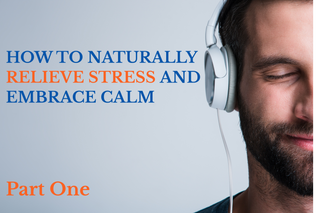Introduction
Stress impacts every part of your body. While it initially feels like a mental reaction, it can easily manifest into physical issues too.
Generally, stress appears at the most inconvenient times, heightening its overall impact and worsening the longer it persists. While everyone experiences stress differently, most of us can learn to relieve it with similar methods. Nonetheless, embracing calm and reducing stress isn’t something you can do with the flick of a switch. However, when you take the time to concentrate on overall wellbeing, you can reduce the hold stress has over your daily life.
This blog will look at some of the most critical aspects of your life that can help you embrace your inner calm and relieve any stress that may be building up within.

Mindfulness
Mindfulness is the ability to be fully present, aware of where we are and what we’re doing and not overwhelmed by what’s going on around us.
One of the best ways to practice mindfulness is through meditation, a process of training ourselves to respond more skillfully to any challenging situation of perceived stress. Over time, mindfulness meditation effectively quietens an overactive stress alert system.
Learning to incorporate mindfulness into your daily life may take some time and practice to learn to slow down and live in the moment.
Try an app. If you are new to the practice of mindfulness, using an app that provides information, resources and guided practices can be helpful for getting started.
This is one of the reasons why numerous studies have found mindfulness to be an effective stress management tool.

Check Your Diet
A nourished body has a better chance of dealing with stress. So, check your diet to ensure you get the proper nutrients to support your adrenal and thyroid glands - and every other part of your body.
Checking your diet also involves ensuring you regularly eat, from morning to evening. Skipping breakfast, in particular, can put unnecessary stress on your body. Here’s a list of some of the best foods to help keep stress at bay from the moment you wake up:
- Whole grain foods
- Sweet potatoes
- Fatty fish like salmon, sardines and tuna
- Leafy greens
- Advocado
- Bananas
- Broccoli
- Dark Chocolate
- Pumpkin Seeds
- Nuts
- Chamomile tea

Stay Hydrated
Drinking water has an incredible impact on your emotions and mood. When you’re dehydrated, your body is already stressed, which means emotionally, you’re more likely to feel stressed too. Keep a bottle of water with you always and ensure you’re sipping on it regularly to keep your hydration levels up, especially during high-stress periods of your day.
If you’re bored with plain water you can use a water bottle with a flavour infuser and enjoy the taste of mint, lemon/lime, strawberries, raspberries, blueberries, rosemary or cucumber.

Prioritise Sleep
Sleep is one of the most powerful natural remedies for combating stress. However, it can also be one of the most challenging things to achieve when you’re wrapped up in a stressful situation.
Nonetheless, prioritising sleep and rest when you’re feeling fatigued is vital. Before you go to bed, make sure you take some time to unwind. Doing some mild physical exercise like stretching or yoga or meditation or reading can help your mind unwind. Make a ritual to integrate some self-care, no matter what that looks like for you.
Furthermore, leave your mobile phone out of the bedroom if you can. People tend to check their phones more often when they're stressed about work or other life issues. By leaving it outside your bedroom, you’re creating a physical distance between you and the thing that’s stressing you.

